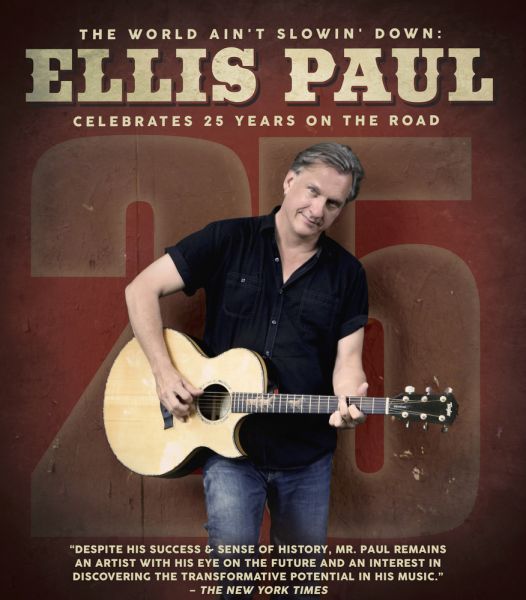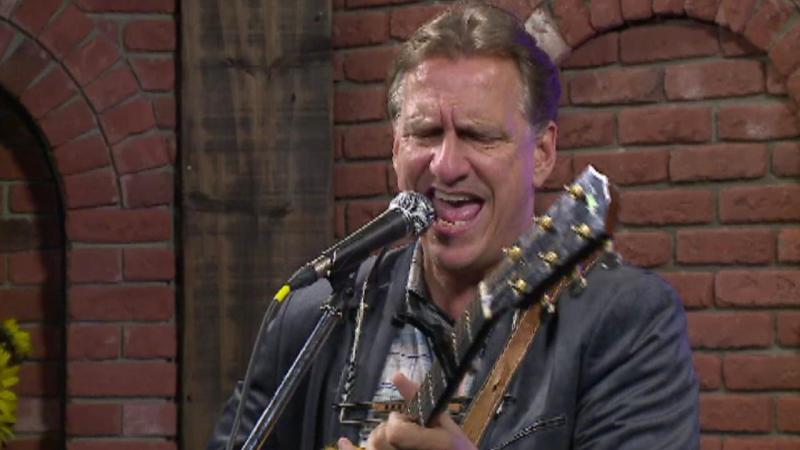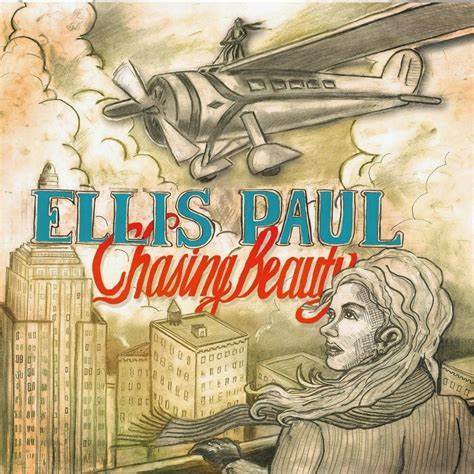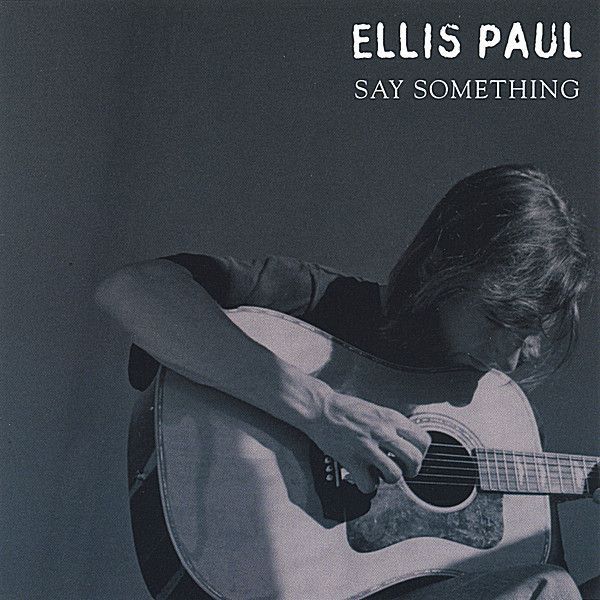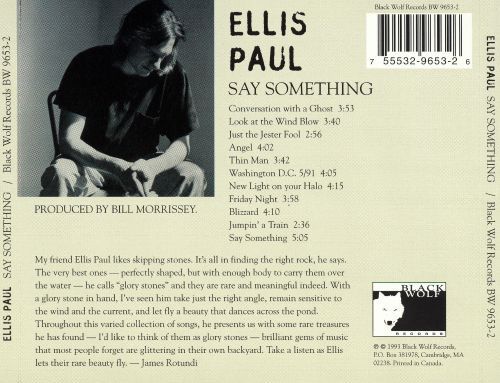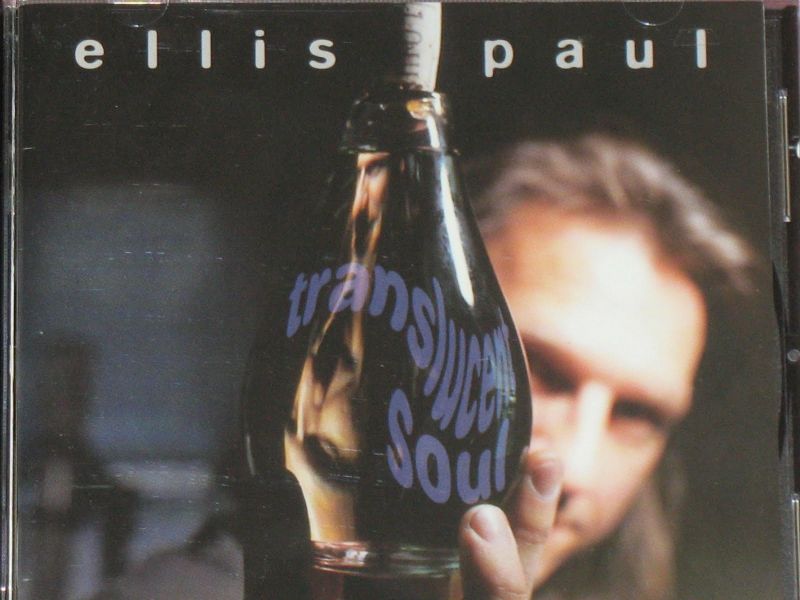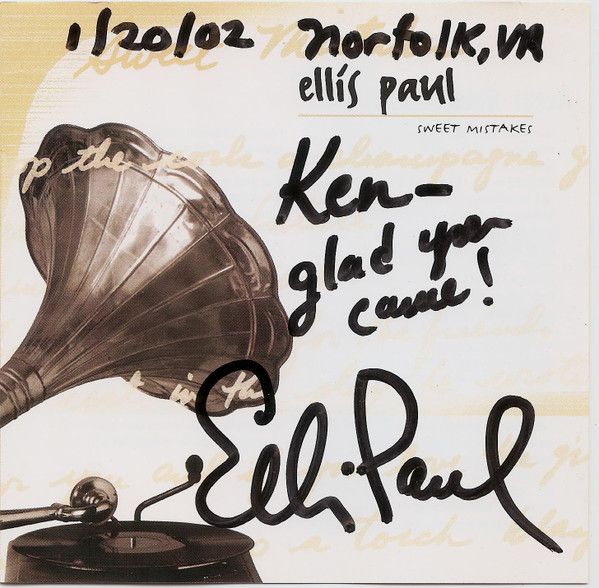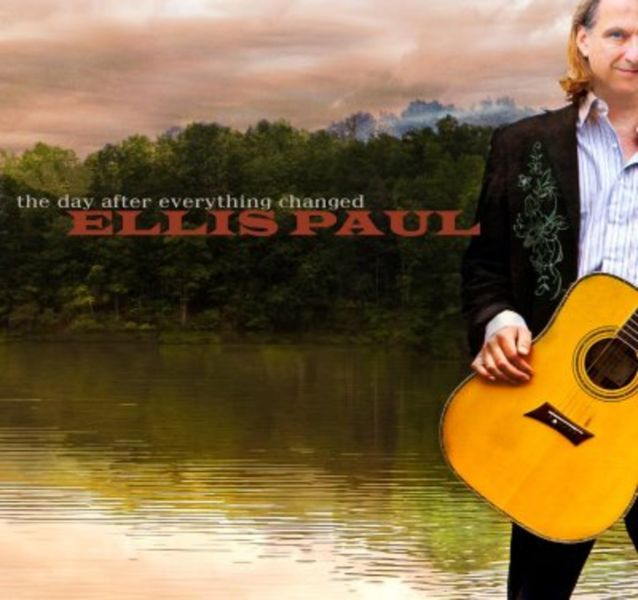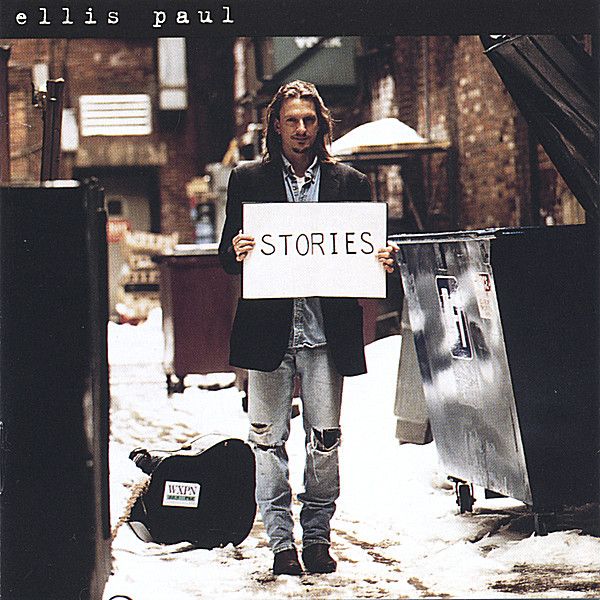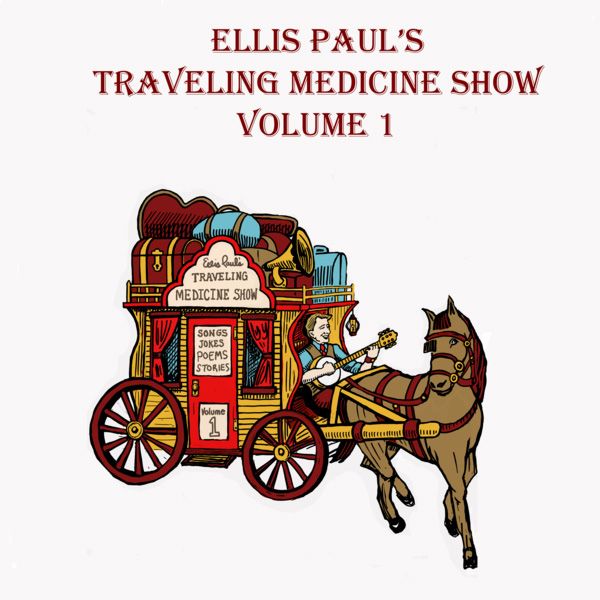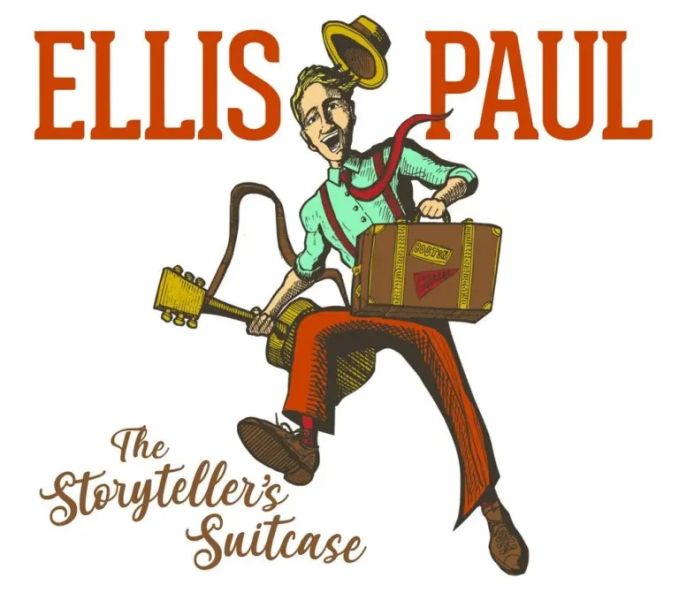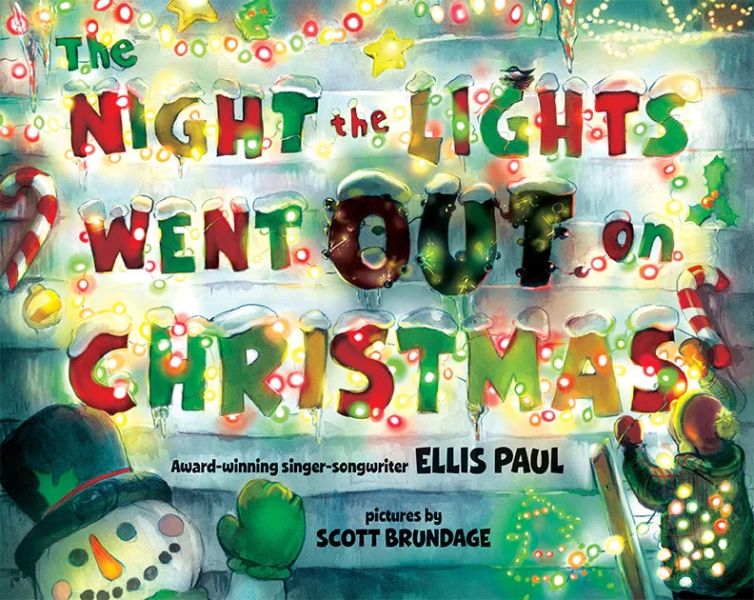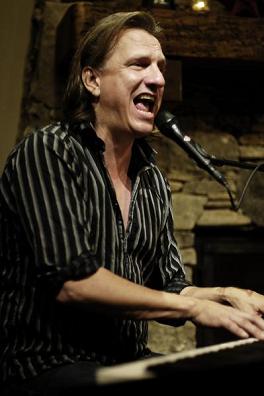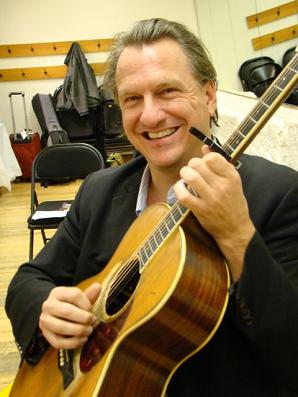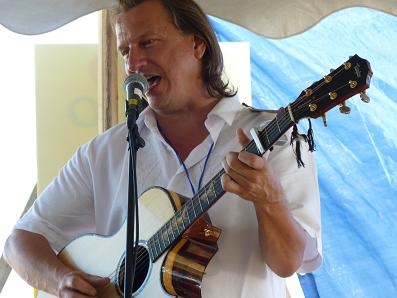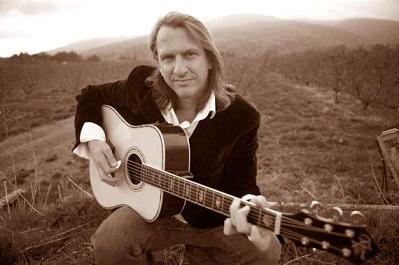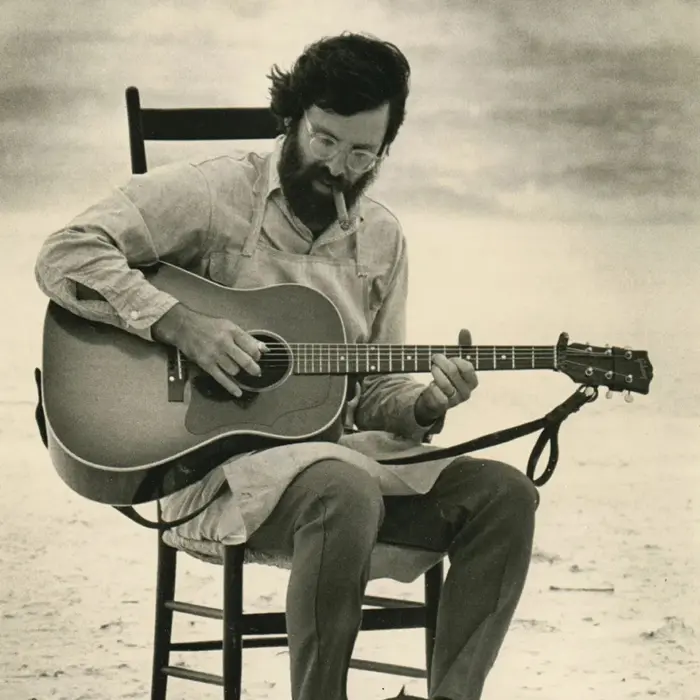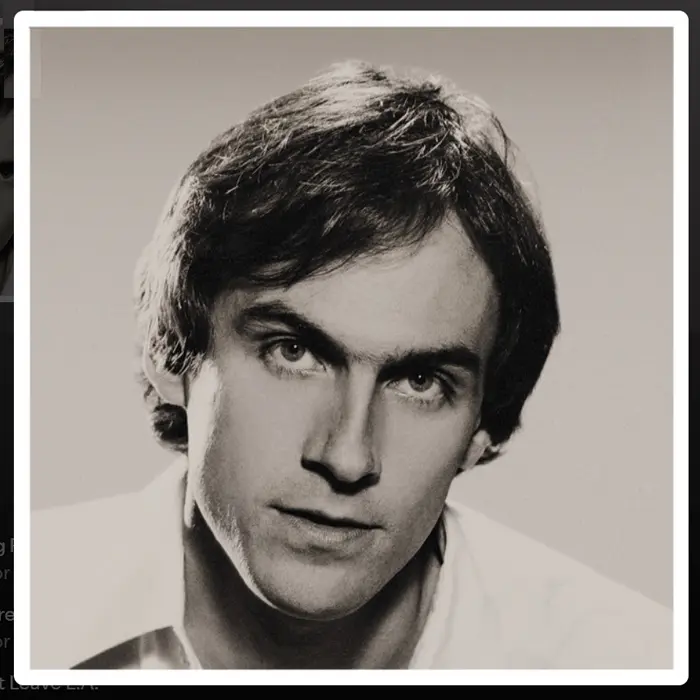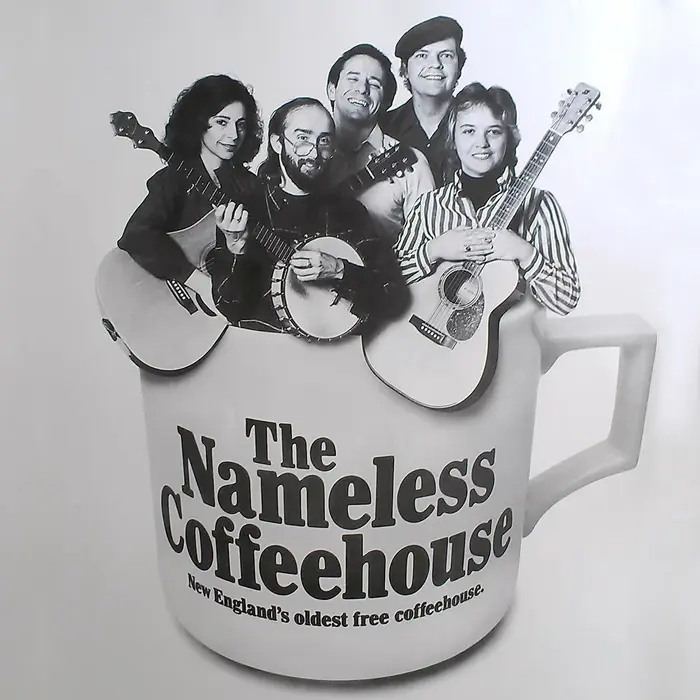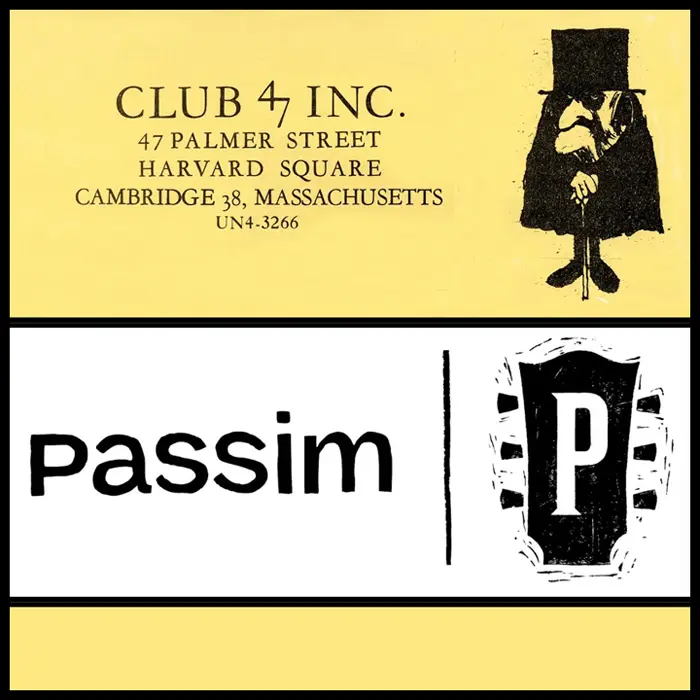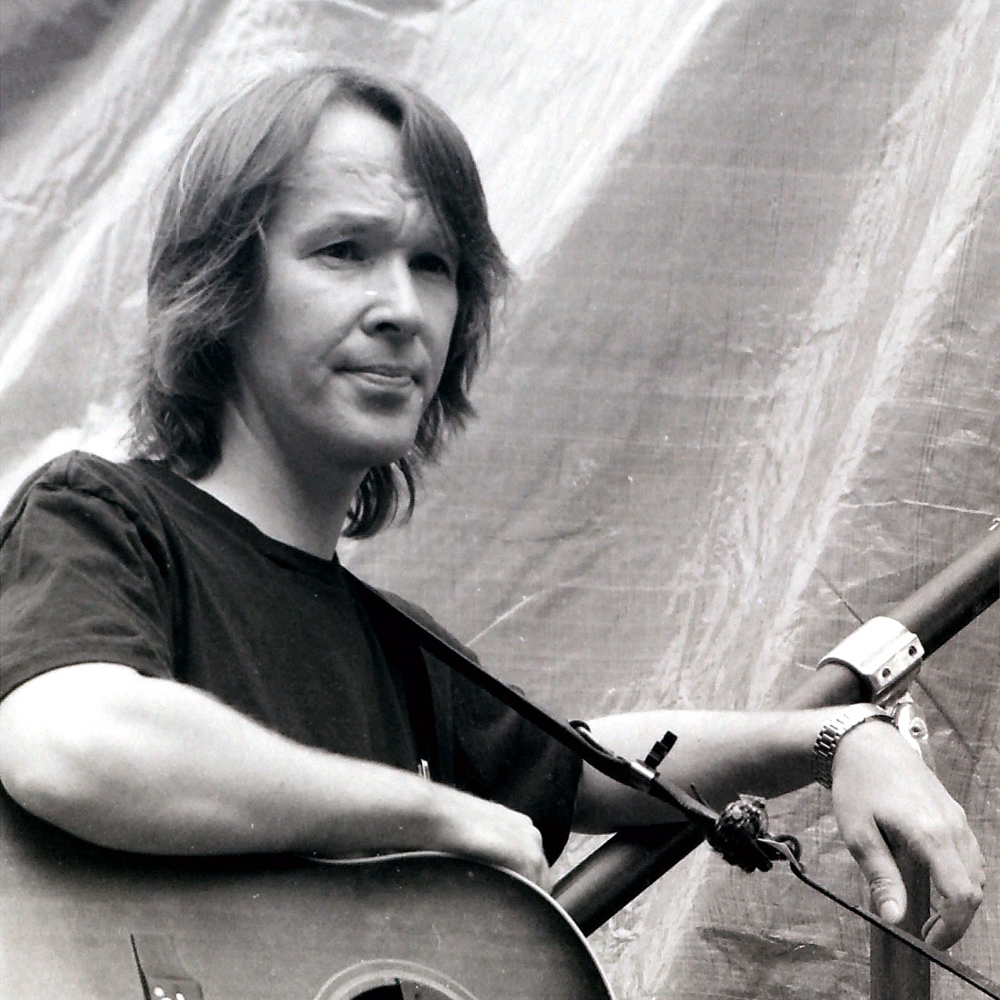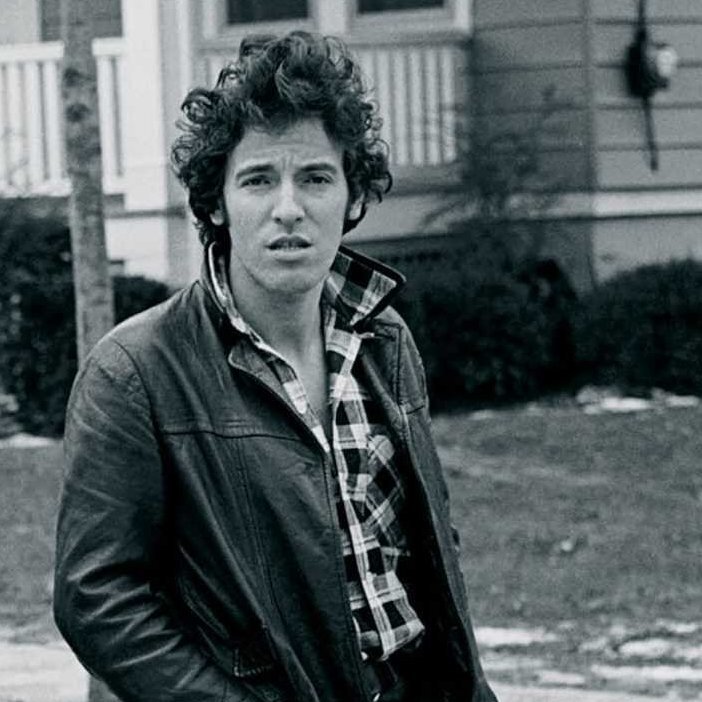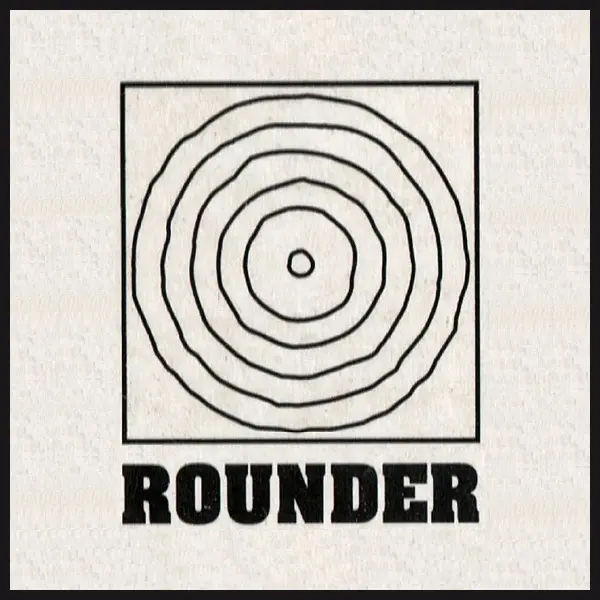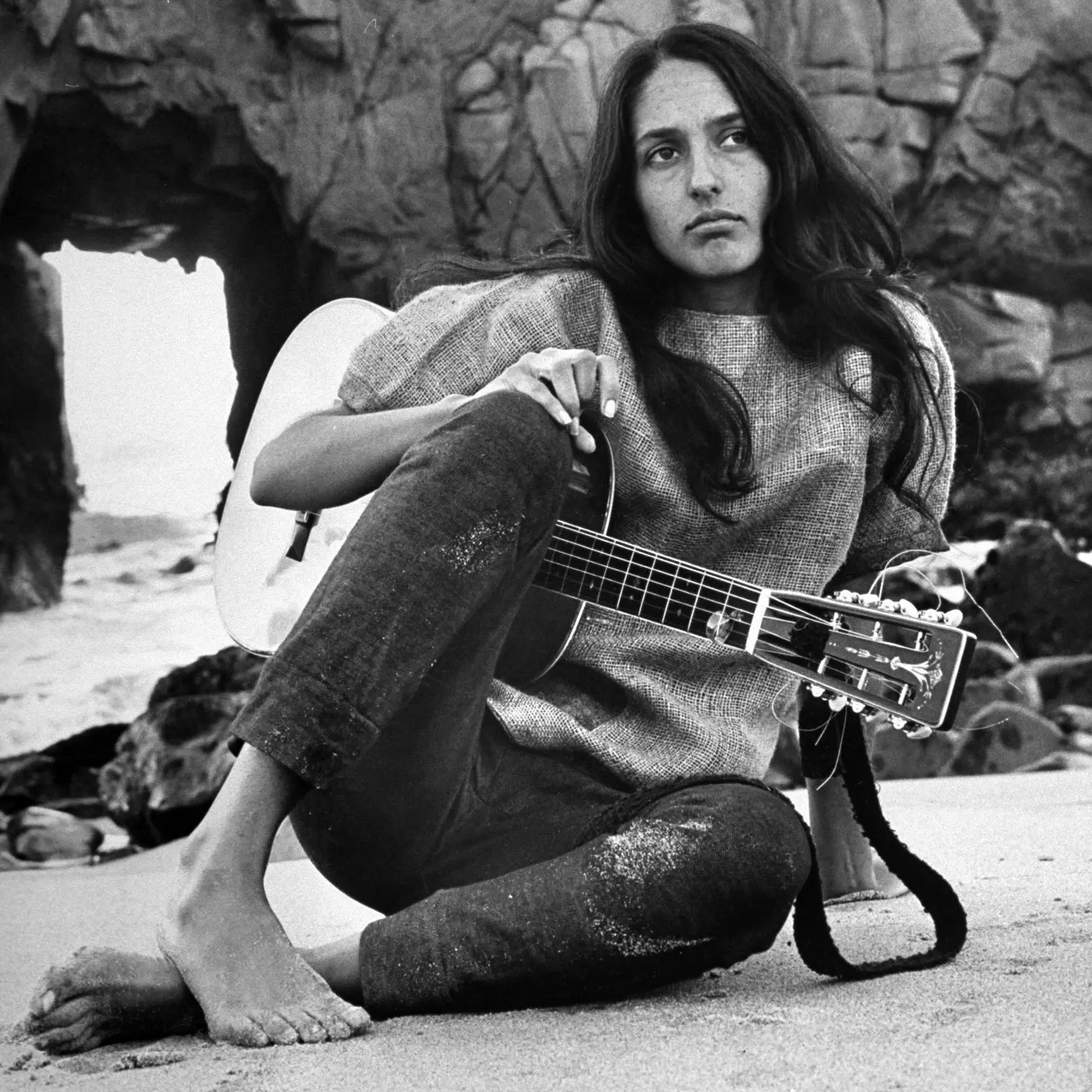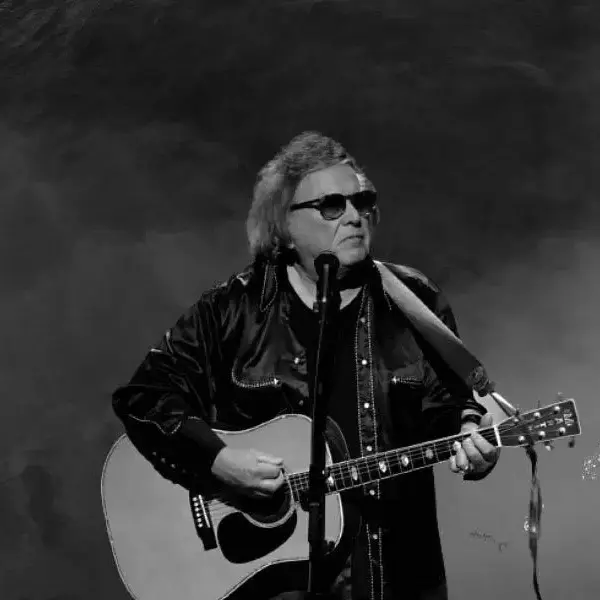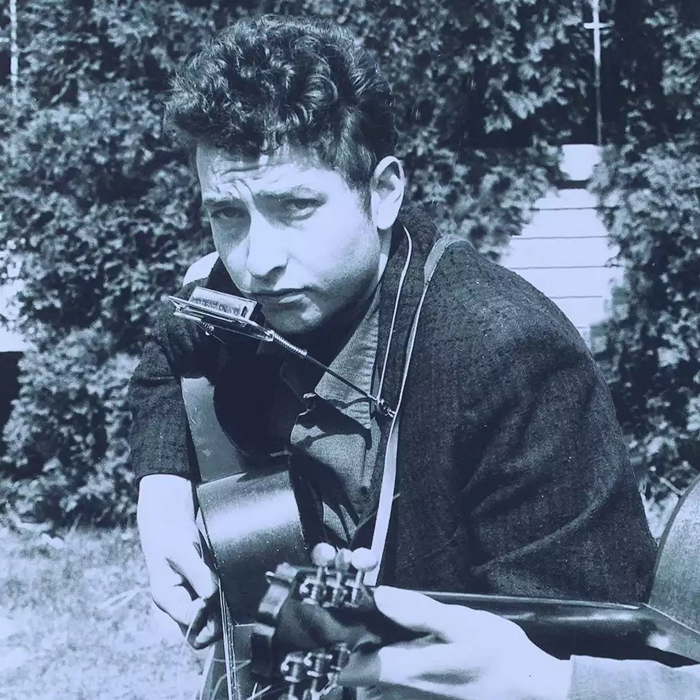Ellis Paul
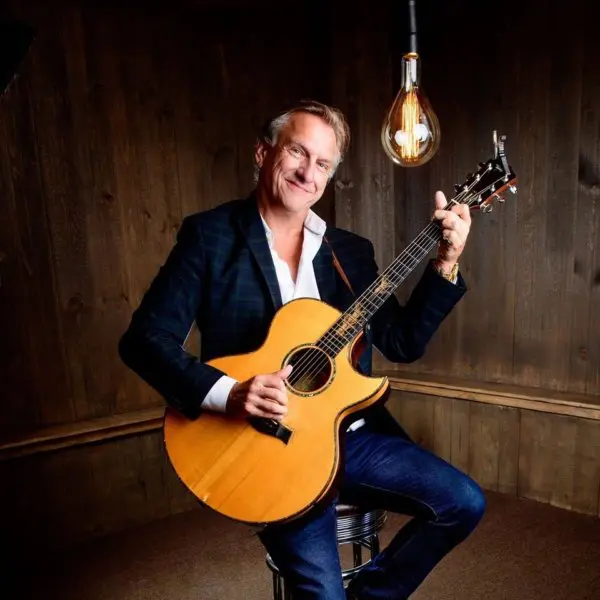
Bob Dylan’s 13-track debut album has just two original songs, one of them being “Song to Woody,” his tribute to Woody Guthrie. The others were either written by or arranged by folk-blues originators (Bukka White, Jesse Fuller, Curtis Jones, Blind Lemon Jefferson, Mississippi Fred McDowell) or traditionals arranged by Dylan or artists of his generation (Dave Van Ronk, Eric von Schmidt).
And that says something. Call it “showing respect.” Call it “paying homage.” Call it “giving credit where credit’s due.” Call it what you will, but know this: Ellis Paul gets it. Hell, he has a tattoo of Woody Guthrie on his right shoulder. I am not making this up.
Overview
An outsized figure in what’s known as the “Boston school of songwriting” – literate, introspective, provocative, topical, romantic, in equal measure – Paul has recorded 21 albums since 1989 (winning 14 Boston Music Awards in the process), making him one of the most prolific of Boston-school songwriters, the list of which includes artists not originally from Boston like Shawn Colvin and Dar Williams.
He’s made dozens of appearances on other artists’ recordings and been a consistent conduit between the mid-20th-century populist songs of Phil Ochs, Pete Seeger and Utah Phillips and those of 21st-century indie-folk singer-songwriters like Damian Rice, Julien Baker and Elliott Smith, deftly balancing himself on an artistic tightrope stretching between old and new, never stepping too far toward one side or the other.
Early years
Born Paul Plissey on January 14, 1965, in Fort Kent, Maine, and raised in nearby Presque Isle, a potato-farming town near the US-Canada border, Paul’s family had deep potato-industry connections. His grandfather owned a potato farm where young Paul worked virtually full-time during the three weeks a year that public schools closed for that very purpose and his father was the executive director of the Maine Potato Commission. His mother was an agricultural extension agent – meaning she researched ways to make farming more efficient, among other duties – and produced her own television show, The Aroostock Homemaker, in the 1960s.
While in high school in the late-1970s and early ’80s, Paul played trumpet in the school band, where he was introduced to the big-band sounds of Stan Kenton, Maynard Ferguson and others, and listened to Top-40 radio. He had never heard folk music until he went to college, he told the Boston Herald in 1993. Paul was the star of the school’s track team and Maine state champion in five-kilometer distance running, resulting in a scholarship to Boston College. In 2013, he was inducted into the Presque Isle High School Athletic Hall of Fame.
Folk beginnings, Open-mic night regular
In September 1983, having graduated from high school the previous May, Paul was among the tens of thousands of teens arriving in Boston for the start of the new semester, leaving behind the rural environs he’d known since birth. During his freshman year at BC, he heard Dylan’s acoustic rendition of “House of the Rising Sun” (recorded in 1962), which piqued his interest in folk music and soon he was devouring Dylan’s pre-1965, folk-oriented catalogue along with albums by Neil Young, Joni Mitchell and James Taylor. The 18-year-old English major did not know how to play guitar.
But that changed in his junior year – in a life-altering way – when a knee injury put a virtual end to his track career. With time on his hands and his passion for folk heating up almost by the hour, Paul starting learning chords and within just a few months he was writing his first tunes, using a ‘70s-rock songbook as a guide. The 20-year old beginner never considered pursuing a career in music.
After graduating in 1987, Paul worked as a teacher and social worker while playing open-mic nights at venues including the Old Vienna Kaffeehaus in Westborough and O’Brian’s Bar & Grill and the Nameless Coffeehouse in Cambridge, often sharing the stage with other up-and-comers including Shawn Colvin, Dar Williams, Vance Gilbert and fellow Mainer Patty Griffin. “I discovered that there were folk clubs where people were actually listening, and not drinking and carousing while you played,” he told FolkWax ezine in 1996.” I think that’s why I’ve become so lyric-conscious – because of those listening rooms, where you really have to rely on words.”
First recordings, Album, Rounding signing, Guthrie tattoo
In 1989, now an established voice on the ever-thriving local folk scene, Paul won the Nameless Coffeehouse’s New Songwriter Award, played his first gig at Club Passim, recorded four songs for the independently produced LP Resume Speed: New Artist Collection and cut two albums worth of original material, Am I Home and Urban Folk Songs, both self-released on cassette only at the time but re-released by Black Wolf Records on CD in 2000.
In 1991, Paul won the Boston Acoustic Underground Award and Windham Hill Records included his song “Ashes to Dust” on its Legacy II compilation, released in 1992, a landmark in Paul’s career as it provided his first national exposure. In the fall of 1992, the folk-soaked Mainer – who six years earlier couldn’t play a single note on guitar and had never written a song – quit his day jobs to pursue music full time with Black Wolf co-founder Ralph Jaccodine as his manager.
In 1993. Paul recorded his first LP, Say Something, followed by 1994’s Stories, both released on Black Wolf and produced by Bill Morrissey, the latter landing him a contract with Rounder Records. By 1996, he’d become such a Woody Guthrie nut that he had his image tattooed on his right shoulder.
Woodfest debut, Honorary Okemah citizenship, 2000s Recordings
In 1998, he appeared alongside Bruce Springsteen and Billy Bragg at the Rock & Roll Hall of Fame for a Woody Guthrie tribute concert and headlined at the debut Woody Guthrie Folk Festival – colloquially known as “WoodFest” – in Okemah, Oklahoma, Guthrie’s hometown, which made Paul an honorary citizen. In 1999, he played at Club Passim’s 40th anniversary show, held at Sanders Theatre in Cambridge, along with Joan Baez, Patty Griffin, Dar Williams, Josh Ritter and others.
In 2000, Paul’s name recognition increased immeasurably when his song “The World Ain’t Slowin’ Down” was included in the film Me, Myself and Irene and further boosted in 2001 when his tune “Sweet Mistakes” was used in Shallow Hal. By the summer of 2000, his popularity had grown to such an extent that he was invited to do something most of his fellow New Englanders can’t begin to imagine: sing the national anthem at Fenway Park. Since then, he’s returned to the home of the Green Monster several times for repeat performances.
In 2003, Paul joined Ribbon of Highway, Endless Skyway, a Woody Guthrie tribute tour spearheaded by Texas-based singer-songwriter Jimmy LaFave during which a rotating ensemble of singer-songwriters travels around the US playing Guthrie’s songs. Also that year, Black Wolf released the four-DVD set 3000 Miles featuring a live show recorded in 2001 at Somerville Theater, a travelogue of Paul on a cross-country tour and him demonstrating some of his unique guitar turnings.
In 2005, Black Wolf issued Live at Passim, recorded on December 30/31, 2005, at Paul’s twelfth consecutive New Year’s appearance at the venerable venue – with all proceeds from sales of the album going to Club Passim – and in 2006 Rounder issued the first compilation of Paul’s material, Essentials, establishing him as what Roberta Schwartz of the Folk and Acoustic Music Exchange has called “the face of contemporary folk music.”
In 2008, inspired by the birth of his second daughter, Paul recorded a children’s album on the Black Wolf label, The Dragonfly Races, which the Parents Choice Foundation (PCF) awarded its Silver Medallion. He recorded a second children’s LP for Black Wolf in 2012, The Hero in You, which PCF awarded a Gold Medal. He’s also authored two children’s book, 2014’s The Hero in You (companion to the album of the same name) and 2015’s The Night the Lights Went Out on Christmas both published by Albert Whitman & Company,
20th anniversary show, “Ellis Paul Day,” Awards, Accolades
In July 2010, Paul celebrated his 20th year in the music business by playing a five-night stand at Club Passim, performing his eight solo albums in chronological order (two per night) and doing a children’s concert. On the day of the first show, Boston Mayor Thomas M. Menino proclaimed July 9th Ellis Paul Day in the City of Boston.
In 2014, he was inducted into the Maine Music Awards Hall of Fame in its inaugural ceremony alongside singer-songwriters Don McLean, Howie Day and David Mallett. Also that year, the University of Maine at Presque Isle awarded him an honorary Doctor of Humane Letters degree; at the ceremony, Paul played his tune “Rise Up,” which the school has adopted as its official song.
The Storyteller’s Suitcase, Traveling Medicine Show: Volume 1, 55
In 2019, Paul recorded The Storyteller’s Suitcase, issued on the Rosella label, with the song “I Ain’t No Jesus” winning the International Acoustic Music (IAM) Award for Best Americana/Roots Song and the album winning the IAM’s Overall Grand Prize and Album of the Year from the Northeast Regional Folk Alliance. His next album was 2021’s Traveling Medicine Show: Volume 1, also on Rosella, an 11-track disc with just one original and an eclectic range of covers including Harry Chapin’s “Cats in the Cradle,” Lennon-McCartney’s “Day Tripper” and Harberg-Arlen’s “If I Only Had a Brain,” popularized in the 1939 film The Wizard of Oz.
In June 2023, Rosella released Paul’s latest album, 55, the songs for which he wrote during Covid-19 shutdowns. “I wrote ‘55’ as I was about to turn 56,” he told Americana Highways. “I was thinking about all the trends I’d out-lived. Highway maps. Milk Men. Eight-track tapes … And then the pandemic came. It swept away millions of people including friends and heroes like [country-folk icon] John Prine.”
In March 1962, upon release of his debut album, a reporter asked 20-year-old Bob Dylan how long he’d been writing songs and the Minnesota native replied with a reference to a songwriter born 39 years before him – “showing respect,” “paying homage,” “giving credit where credit’s due,” call it what you will. “I always kind of wrote my own songs but I never really would play them,” he said. “Nobody played their own songs. The only person I knew who really did was Woody Guthrie.”
Ellis Paul would sympathize with that statement. Hell, he’d probably agree 100%. Because just like Dylan, Ellis Paul gets it.
(by D.S. Monahan)



